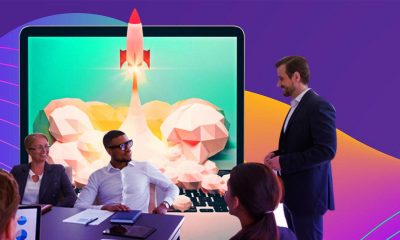Entertainment
Will AI Music Creator Apps Change The Music Industry?
Published
2 years agoon
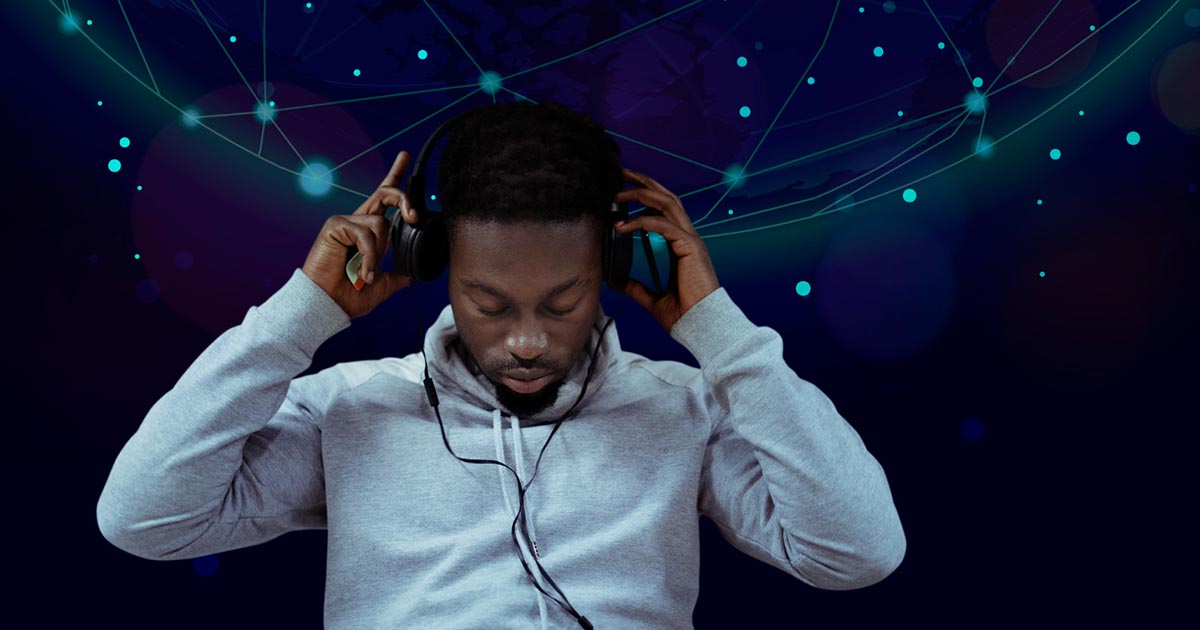
The rapid rise in popularity and revenue generation of AI-generated songs has naturally raised concerns among music industry gatekeepers. Recently, Universal Music Group, representing artists like Drake and The Weeknd, took a proactive stance against copyright violations by urging platforms to remove the AI-generated track titled “Heart on My Sleeve.”
The Emergence of AI Music Creators
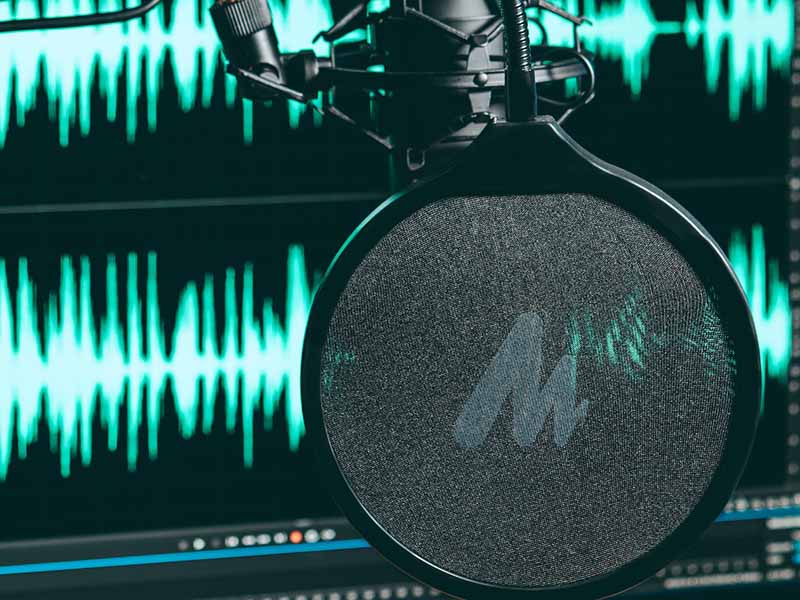
The concept of using AI for music creation may sound futuristic, but it has been steadily developing over the past few years. AI systems became sophisticated enough to compose music that could rival human products. With advancements in deep learning algorithms, AI has become adept at analyzing vast datasets of existing music, learning patterns, and generating new compositions that reflect the styles of various artists and genres.
The technology has advanced to a point where AI-generated music can now mimic various musical styles. However, music fans and reviewers argue that no musical Rubicon has been crossed. And AI hasn’t crushed the music business yet. Find out whether the booming AI creator applications will change the music industry.
Is AI the new star of the music world? Not quite. Trending AI image generators like Dall-E 2 and Midjourney can create images based on prompts. On the contrary, making music is a different ballgame. In this situation, a human was essential to combine track production, lyrics, and chord structures. AI’s role mainly was sourcing raw materials, but human hands curated most of the work. The outcome is undeniably a fusion of organic human creativity and synthetic machine intelligence. Despite the existence of fully integrated AI music creators, they still need to pass the music Turing test. It needs further development and refinement.
Democratization of Music Creation
One of the most significant impacts of AI music creators is the democratization of music creation. Historically, music production required access to expensive recording studios, skilled musicians, and complex equipment. AI music creators, on the other hand, allow aspiring artists with limited resources to produce high-quality compositions in the comfort of their homes. AI has opened doors for a more diverse musical expressions, challenging traditional gatekeepers in the music industry.
Personalized Music Experiences
As AI gains insights into users’ preferences, it can create personalized music experiences. Streaming platforms and music apps can use AI to curate playlists and recommend songs that align with individual listeners’ musical tastes. This level of personalization enhances user engagement and loyalty. It may also increase user satisfaction and revenue for the music industry.
Collaborative Opportunities
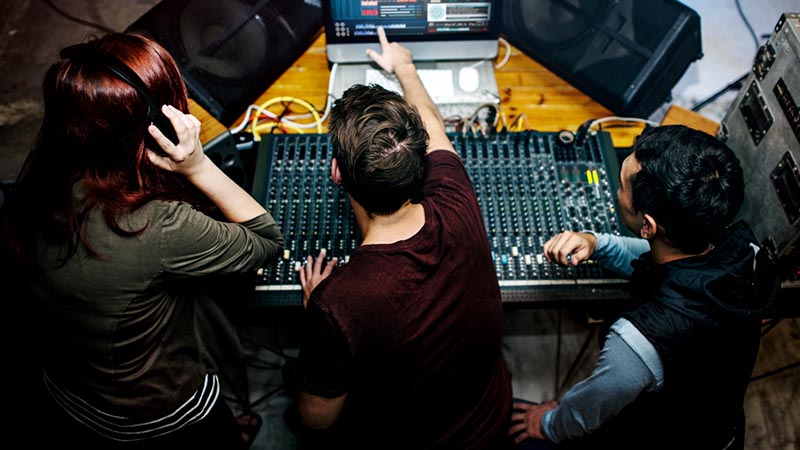
AI-generated music is not designed to replace human musicians but rather to complement them. It presents a unique opportunity for artists to collaborate with AI systems to explore new creative avenues. Musicians can use AI as a co-creator to generate melodies and harmonies. In addition, AI can also recommend production techniques. This collaboration can spark fresh ideas and push the boundaries of what’s creatively possible. In other words, this fast-evolving technology is designed to create a fusion of human artistry and AI innovation.
Challenges and Ethical Considerations

While AI music creators offer numerous benefits, they also raise important ethical considerations and challenges for the music industry. Here are some of the difficulties facing AI-generated music:
Copyright and Intellectual Property
As AI becomes proficient at mimicking specific artists’ styles, there arises a question of ownership and copyright. Who owns the rights to a song generated by AI that sounds remarkably similar to a famous artist’s work? Determining the legal and ethical ownership of AI-generated music can be complex and requires a reevaluation of copyright laws and intellectual property rights.
Originality and Creativity
Critics argue that AI-generated music needs more true creativity as it is based on patterns and algorithms derived from existing compositions. While AI systems can produce impressive pieces, they may need to possess the depth of emotions that fuel human creativity. Defining and appreciating the distinction between human and AI creativity will become a focal point in future discussions.
Impact on Human Musicians
The fear of automation replacing human jobs is not new to the music industry. AI music creators also raise concerns about the impact on human musicians and composers. Will AI take away opportunities for human musicians? Will it create new avenues for artistic expression? These are just a few questions arising from this creative innovation. That’s why maintaining a balance that supports both human creativity and AI innovation is essential for the sustainable growth of the music industry.
Future Possibilities in AI-generated Music
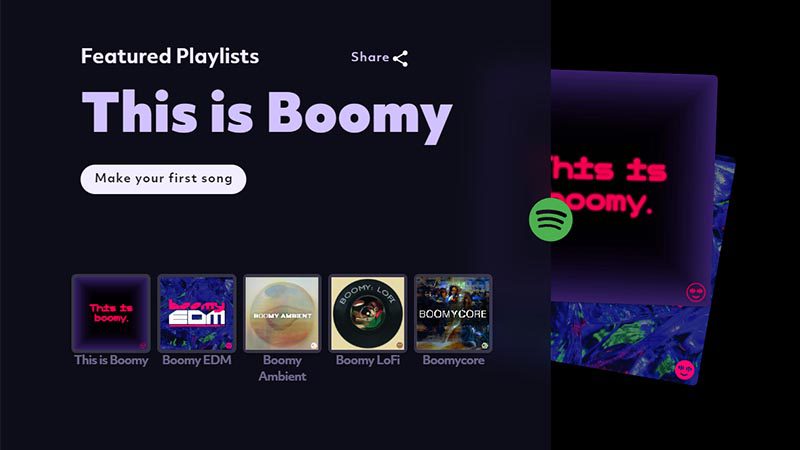
An example of AI music creator – Boomy.com
Looking ahead, the integration of AI music creators into the music industry opens up exciting possibilities:
1. New Music Genres and Styles
AI music creators can blend elements from various genres, leading to the emergence of new musical styles. By pushing the boundaries of conventional music, AI can inspire artists to explore uncharted territories, resulting in a more diverse and innovative musical landscape.
2. AI-Powered Live Performances
Imagine a concert where AI-generated music is composed and performed in real-time, tailored to the audience’s preferences and reactions. AI-powered live performances can create unique and immersive experiences that evolve with the energy of the crowd, transforming the traditional concert experience.
3. Enhanced Music Education and Learning
AI can also revolutionize music education, offering personalized learning experiences for students. AI-powered tutoring systems can analyze individual students’ progress and tailor lesson plans to address their strengths and weaknesses, ultimately improving the overall learning process.
Final Thoughts
The real question is whether AI-generated music can evoke an emotional response. For music to resonate, there must be a deeper connection and meaning. The automated process lacks feeling, movement, and experience in music creation. AI can create a higher-value proposition for the real thing. But like knock-offs in fashion, there will be a market for mid-brow auto-songs and hand-crafted haute couture music.
With AI’s assistance, we can better use natural, organic, human-made art to access our subconscious selves. There is hope. Artists should see the emergence of AI music creator tools as an opportunity and extension of their brands. Future music fans will design the music they want to hear. Moreover, the creative class must learn to adopt AI and leverage their skills effectively, not lament the inevitable.
You may like
Entertainment
Taylor Swift’s Fortune: The Billionaire Behind The Eras Tour
Published
2 weeks agoon
June 17, 2025
Taylor Swift’s journey in music has been nothing but extraordinary, phenomenal, even. From a young country music singer-songwriter to a global pop culture icon, she has consistently pushed the boundaries of what it means to be a successful artist. With a $1.6 billion real-time net worth as of this writing, her fortune is built not only on her musical talent but also from her savvy business acumen and deep connection with her fans.
Taylor Swift’s Rise to Stardom
First making a name in the world of country music, Taylor Swift began her musical journey as a teenage prodigy. She signed with Big Machine Records at the age of 14, and by 2006, she had released her self-titled album.
This gained her much-needed attention, thanks to the incredible mix of catchy melodies, heartfelt lyrics, and a distinct country-pop sound. A few tracks (Tim McGraw and Teardrops on My Guitar) became instant hits and anthems for her young listeners. Swift’s amazing ability to capture the complexities of adolescence resonated loudly with fans and, with much authenticity, built her a loyal following.
The release of her 2014 album, 1989, showcased Swift’s exploration of a broader musical territory. Her transition from country to pop was met with critical and commercial success, paving the way for a larger global audience and expanding her reach beyond country music. This album cemented her position as a mainstream pop icon.
Since then, Swift has garnered recognition, including 12 Grammy Awards, while solidifying her status as a cultural icon.
The Business of Taylor Swift
Another significant component of Taylor Swift’s success comes from her keen business acumen. Early in her career, she made one of her most strategic moves: securing the ownership of her songwriting rights. Her deal with Big Machine Records resulted in the label owning the rights to her first six albums.
To gain control over her creative work, Swift rerecorded and rereleased her music, calling them Taylor’s Versions. This was met with immense commercial success while raising awareness about the challenges artists face in the music industry. This positioned her as a voice for change and a powerful advocate for fellow musicians.
The business savvy didn’t end with Taylor Swift’s music. Endorsements, investments, and partnerships also added to her wealth. Then there’s the merchandising empire, which is a huge part of Taylor Swift’s financial success. Swifties, as her fans call themselves, are fiercely loyal and would buy exclusive merch tied to Swift’s albums, tours, and personal branding.
The Financial Impact of “The Eras Tour”
And the buck doesn’t stop there. The Eras Tour has been a game-changer for Taylor Swift. It set new records and reshaped the live music industry. It became one of the highest-grossing in history, with some estimates at over a billion dollars in revenue. While it showcases her universal appeal, it also boosted economies in cities around the world.
Each of Swift’s performances became a celebration of her musical journey. They were replete with stunning stage designs, elaborate setlists, and personal storytelling, creating an immersive experience that gave the show a once-in-a-lifetime feel.
The influx of Swifties impacted host cities economically. Local businesses such as hotels, restaurants, and transportation benefited greatly from the tour.
Taylor Swift: The Savvy Businesswoman
Carefully managing her brand and image led Taylor Swift to success beyond her music. She evolved with her audience but remained true to her values. Controlling her narrative, she has crafted a relatable yet aspirational persona that resonates well with millions.
Additionally, Swift has aligned her brand with various social causes, reinforcing her image as a musician and entrepreneur who uses her success to make a positive impact. She does this by using her platform to speak out on issues such as LGBTQ+ rights, women’s empowerment, political activism, and overall encouraging change.
The Road to a Billion
Taylor Swift’s road to billionaire status is a result of her diverse income streams. We now know her wealth comes from music royalties, specifically The Eras Tour, merchandise sales, and smart investments. She further strengthened her financial portfolio by investing in real estate, tech companies, and her own production company.
When you compare her to other artists who have reached billionaire status, such as Rihanna and Jay-Z, you’ll see that her success is distinguished by her complete control over her music and brand. While others entered other industries like fashion and beauty, Swift focused on her music, tours, and merchandise, creating a self-sustaining financial empire.
The Cultural Phenomenon
There is no doubt, Taylor Swift is a cultural phenomenon, and this is thanks to her enduring connection with her fanbase, the Swifties. She has built a solid relationship with them through genuine interactions, storytelling, and a sense of community. She has shown an openness in social media that, alongside her relatable lyrics, connected her with fans on a deeper and more personal level.
Taylor Swift has indeed shaped pop culture and the entertainment industry by setting trends, challenging norms, and advocating for causes she believes in. From fashion trends to how artists navigate their careers, Swift has made her impact. Most importantly, her authenticity has set her apart.
She has displayed the ability to evolve musically while maintaining her values, earning her the loyalty of her diverse following. Her lyrics are deeply personal, touching on various subjects like love, heartbreak, and self-discovery, echoing the sentiments of her listeners on a universal level.
Final Thoughts
From a country music star to a global icon, Taylor Swift has to thank her unparalleled talent, strategic thinking, and deep connection to her fans. Her savvy business moves, groundbreaking tours, and authenticity have helped her amass a fortune while transforming her into a cultural phenomenon.
Business
Failure to Launch: Why Pixar’s Lightyear is a Box Office Dud
Published
3 weeks agoon
June 12, 2025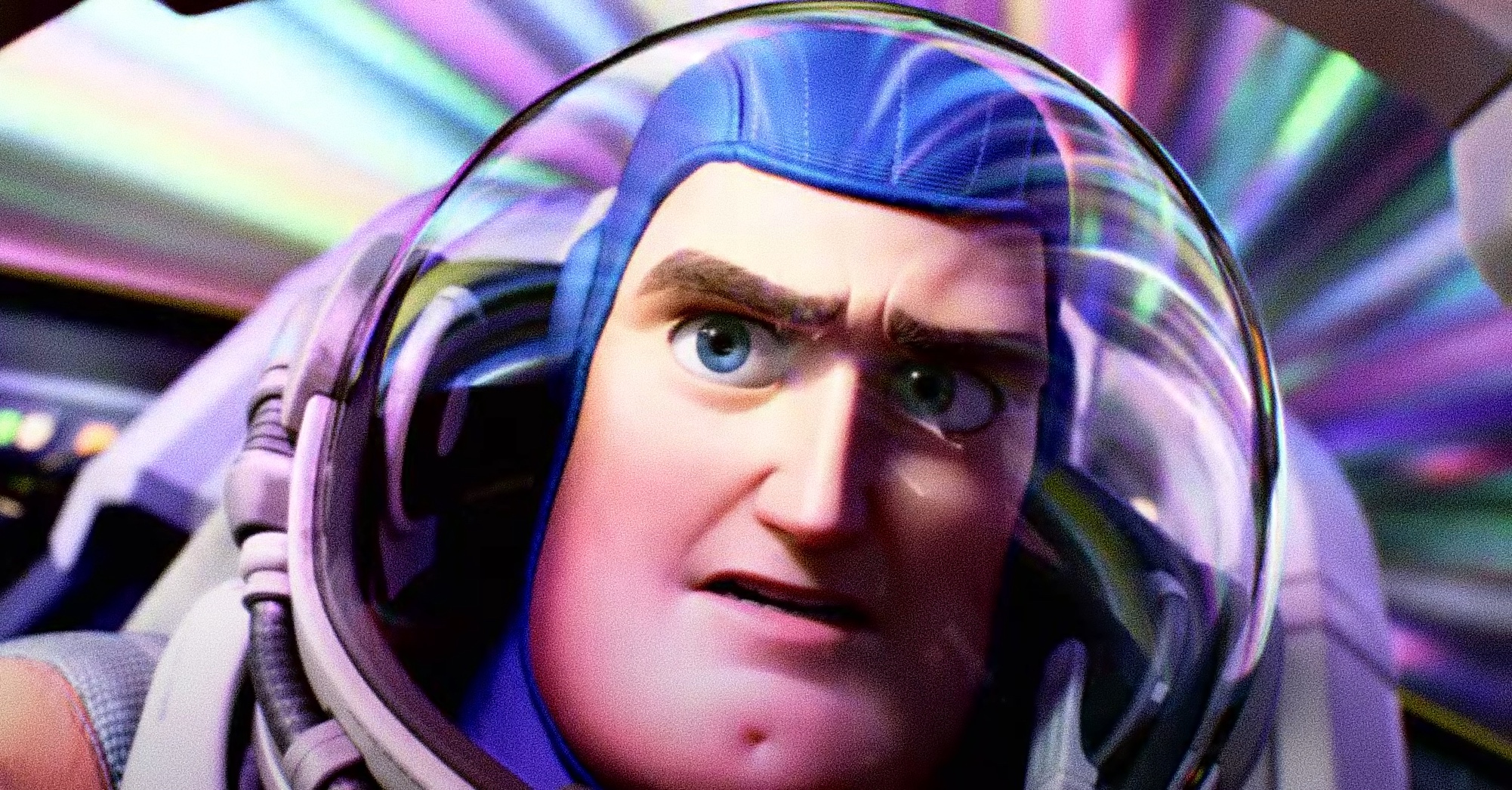
This summer’s movie season is now in full swing, and turnout is strong. Franchise films are facing a decline in dominance, but still hold a significant portion of the box office. In addition, original hits have proven that fresh storytelling can still break through.
Of course, challenges are there. With streaming habits, changing audience expectations, and the unpredictability of box office trends, studios are being kept on their toes. But one thing has remained constant: Pixar’s tentpole releases reliably soar past the billion-dollar mark.
Or so we thought.
Just before the pandemic, Pixar crossed a billion with Toy Story 4, one year after crushing it with Incredibles 2. Now, after a string of Disney+ releases, they’ve taken another big swing with the Toy Story spinoff Lightyear.
Then, bullish projections had Lightyear nearing a nine-figure opening weekend and cruising to $500m from there. Instead, the family-friendly tentpole opened second, failing to surpass a plummeting Jurassic World Dominion.
Why did Lightyear flop?
You probably seen the headline: Lightyear bombs. Disappointing on its face, but the ramifications go far beyond the potential for a Woody’s Roundup spinoff film.
The past couple Pixar films (Soul, Luca, Turning Red) released exclusively on Disney+. Many maligned the shafting of these exciting animated films. It’s especially upsetting for Turning Red, which could’ve easily been one of 2022’s runaway box office hits.
Lightyear is the test. A new direction for Pixar’s biggest franchise. The most means-tested Pixar film gets the theatrical boost, and if it does well, the other movies follow. For this reason, it is a big deal that Lightyear flopped. So, what happened?
If you frequent Facebook, you’ve no doubt seen the “get woke go broke” narrative. A gay kiss, which was removed from the film and added back after Disney’s March “Don’t Say Gay” controversy, has gotten the film banned in several countries. Domestic concern trolls like Ben Shapiro, enamored by Saudi Arabia’s officially-sanctioned bigotry, ratcheted up scare pieces on the film in the past week.
In today’s new heights of parental hysteria, it wouldn’t surprise me if a few thousand families stayed home due to right-wing fearmongering. Still, history doesn’t really support the notion that this would have a substantial impact on box office. Multiverse of Madness made big bank with equally-major LGBTQ+ characters. If anything, it could be said that these films’ lack of a Chinese release upsets their box office returns, but that doesn’t explain a poor opening weekend.
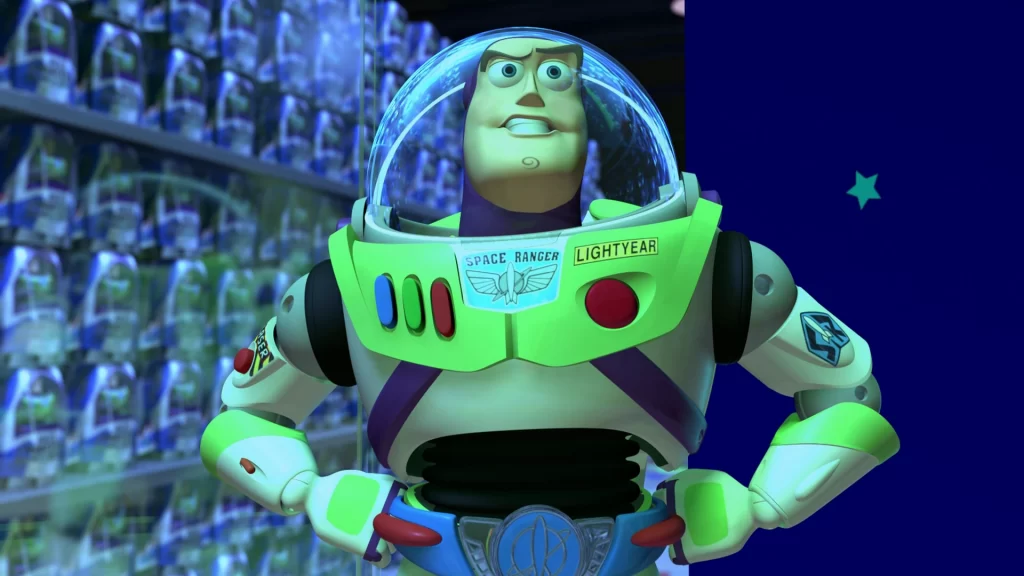
Still others have pointed to the shafting of Tim Allen, replaced in the role of Buzz by Chris Evans. Allen’s performance in the Toy Story movies is iconic and truly fantastic. Still, I question the notion that $30 million went missing from beleaguered Tim Allen fans.
The other explanation? Marketing. Lightyear got off on the wrong foot with an unclear premise. Evans’ ill-fated explanation tweet only made matters worse. Is this about a real Buzz Lightyear in the Toy Story universe?
One could argue that even today, Disney hasn’t totally gotten their story straight. The movie itself explains that this is the movie that the Buzz Lightyear toy comes from. An ‘80s sci-fi movie that Andy saw. In theaters. In 1995. That’s styled like a 2022 blockbuster. You can see how people got lost.
On the other hand, we might just be asking the wrong question.
Did Lightyear flop?
Of course, it’s too early to say definitively if Lightyear is a flop. That’s not what I’m arguing here.
We’re dealing with a case of Hollywood math, the same system by which Suicide Squad’s $750m profit is considered a dismal failure. Disney had the wrong idea about this movie as soon as they pushed it for a tentpole opening.
Lightyear’s $50m opening puts it in league with Coco and Cars 3, solidly ahead of true Pixar flops like The Good Dinosaur and Onward. It’s the highest opening for an animated film since Frozen II. With a COVID handicap still in play, that’s impressive.
Pixar’s mistake was to angle for a major franchise opening. They applied a post-pandemic framework to the nine-figure openings of Toy Story 4 and Finding Dory. They thought, reasonably enough, that parents would pay big money to turn out for a new, fresh installment in the beloved Toy Story franchise.
Herein lies the real problem. Lightyear is not, in any meaningful sense, a Toy Story movie. It has name recognition, which Hollywood has come to treat as a golden rule over the past two decades. But it follows a completely different character, played by a completely different actor, in a completely different world.
Like I said earlier, Tim Allen’s Buzz Lightyear is truly great. But the character is only a toy with an inflated ego, being constantly hit in the face by reality like Sideshow Bob stepping on infinite rakes. So much as wondering about “the real Buzz Lightyear” misses the point of the character.
Lightyear may marginally be a victim of conservative backlash, or poor promotion, or even COVID woes. But fundamentally, it’s a victim of its own premise.
What happens now?
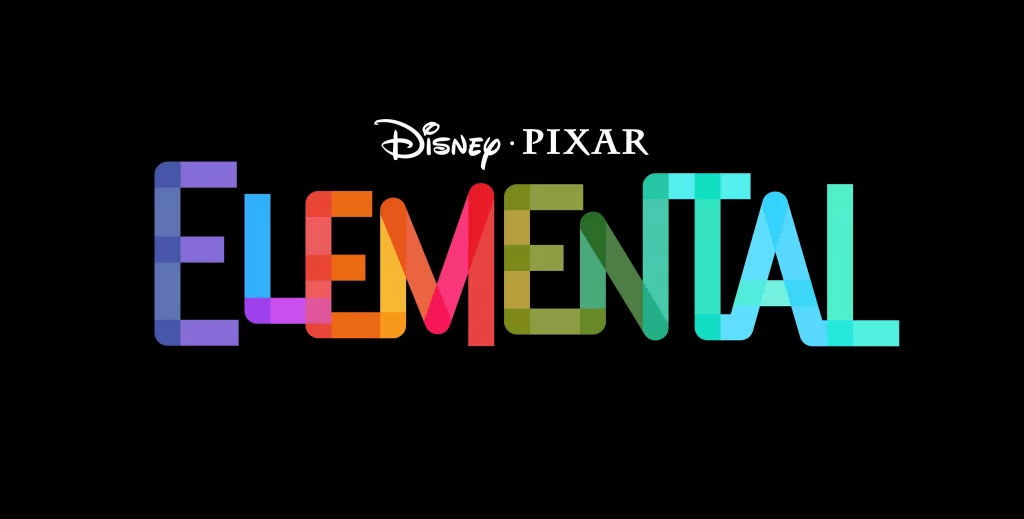
Pixar’s next film, Elemental, is already slated for a theatrical release next summer. Barring a huge COVID flare-up or other societal collapse, they probably won’t go back on that. Down the line, other Pixar flicks in development may be looking at streaming releases if Disney has their way.
If anything, The Bad Guys’ recent success proves feature animation is doing fine. In a few weeks, the new Minions movie will likely confirm that. November’s Strange World will tell us if Disney’s animation department has any sort of long-term problem.
I can’t really recommend that you see Lightyear—in fairness, I haven’t seen it myself. If you want variety at the movies, the answer isn’t to support whatever Disney puts out. Live a little and see something out of your comfort zone. If Lightyear’s fate is already sealed, at least it won’t be at the expense of film as a whole.
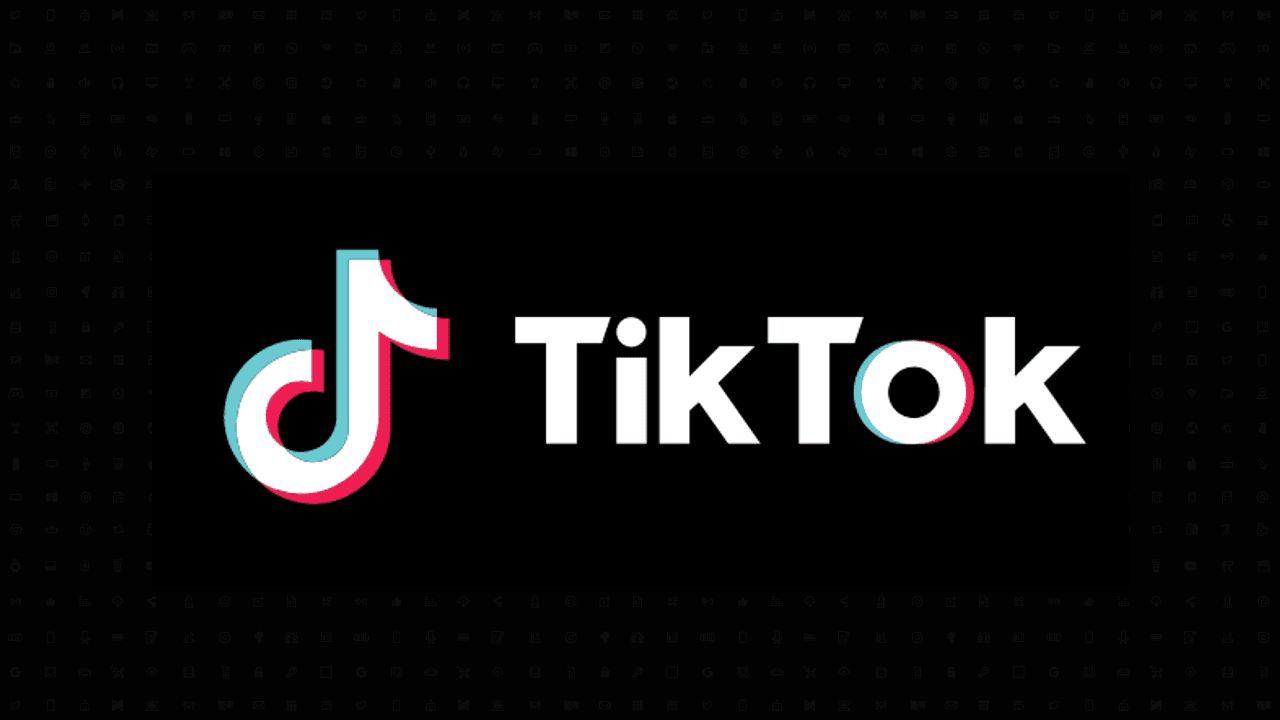
Any avid TikTok user wouldn’t pass up the opportunity to join the TikTok trend bandwagon. And who doesn’t? TikTok is one of the top platforms for Gen Zs and millennials. You could go from zero followers one day to a million views and followers the next day—provided your content is entertaining. Whether you’re new to TikTok or not, not lagging behind the best TikTok trends is easy. All you have to do is follow the top influencers and accounts. But don’t fret. We’ve done the searching for you. Here are 10 top TikTok trends you should try if you’re looking to achieve fame in a day or two!
1. Hairstyle transformation
Hair can transform a person into a whole new person just by changing the style, cut, volume, or color! TikTok users are using the platform to show off their new hairstyles—in a fun way! They show before-and-after images or clips, some with jaw-dropping transformations, and you won’t even know it’s the same person.
Watch this example.
2. Eco-friendly DIYs
Sustainability is a massive part of any content. Whether it’s a business or personal account, focusing on sustainability will get you more followers from like-minded users. Brands are also posting more videos that show sustainable processes and resources. However, if you’re just hugging trees and kissing flowers out here, you can create eco-friendly DIY projects on TikToks to make your clips more meaningful.
Here’s a video of an empty soda bottle turned into a mini fan!
3. Pet challenges
Pets are also a good way to capture the heartstrings of any user, young or old. Content is always meaningful when you include your loving furry companions. Pet challenges involve making your pets perform tricks from prompts, often with trending music. One of the newest pet TikTok trends is the “hands-in” challenge.
Here’s a hands-in challenge video.
4. Trending dances
TikTok’s trending dances never fail! These are always the first viral videos, especially with newly released sounds. These trends are also the simplest to follow if you don’t have two left feet. Some dance moves are easy, such as swaying your hips or moving your hands. Meanwhile, some are more complicated depending on the music. If you want to create a fun TikTok video, trending dances are a go-to!
Here’s the trending Tiramisu Cake dance.
5. Street interviews
Street interviews are also gaining more popularity on TikTok as these videos are fun, candid, and entertaining. Interviewers or content creators can stop anyone on the street and ask them random questions. These questions can vary from recent events and celebrity issues to fun, lighthearted questions. TikTok users enjoy watching these videos because knowing what people think about specific issues or topics is entertaining, especially when put on the spot.
Here’s an example.
6. Recipe remixes
If your TikTok content is about food, you shouldn’t miss recipe remixes. It refers to chefs or cooks cooking traditional dishes and putting their twist to make them interesting. This can also include adding new and unconventional cooking techniques to share something new with aspiring chefs. You can innovate a classic dish from your country or another country and see which process gains more kudos from followers.
This is a TikTok video of a dumpling mix turned into a taco.
7. 90s nostalgia
If you’re a 90s kid, any 90s-related TikTok content will surely make you smile. Bringing the 90s back on a modern platform is nothing new in social media. Creating content that takes you back to the 90s about music, dance crazes, fashion, toys, and trends connects with the right people. While this attracts people in the 90s era, content like this can also interest the new generations that have caught up with it or want to learn more about it. After all, everything in the 90s was way more interesting!
Here’s someone dancing to nostalgic 90s music.
8. A day-in-the-life content
A “day in the life” content is one of the top TikTok trends. This shows your followers what you do daily. Content creators offer their fanbase a peek into their lives, from waking up in the morning and going to work to cooking dinner and bedtime routines. Content like this is suitable for popular creators or influencers to gain more loyalty from their fans. Adding a personal touch to your content will make you seem like someone they can relate with and reach out to. Also, ensure you respond to your fans’ comments in a non-templated manner.
Here’s someone’s day-in-the-life vlog from waking up and going home after a day’s work.
9 Home organization
Home organization TikTok trends are for homeowners who like to keep things neat. These types of content are also informative and benefit followers, encouraging more users to follow your account. Whether it’s showing off your favorite home organization hacks or educating followers on how to create tidier spaces, these videos will impress users, provided they are high-quality.
Watch this example.
10. POVs
You can also create some funny POV (point-of-view) videos about anything. These videos entertain and help you connect with your users, mainly if you publish relatable circumstances. Being a real and genuine content creator is crucial, so you’re building that virtual rapport with your audience. POV videos also take serious situations and turn them into lighthearted jokes.
Here’s a funny POV video.

Why Having an Advisory Board Could Make or Break Your Startup

Best Gift Guide for Men: Perfect Gifts for Every Occasion

What’s the Deal With Elomir? Is Axis Klarity a Scam?

The Best Ways to Recession Proof Your Business

Discover 2025’s Top 10 Online Banks for Smart Savings

Digital Nomads Flock To These 10 Amazing Tax-Free Cities

Loom Review: Features, Use Cases, and How It Stacks Up Against Zoom

What’s the Deal With Elomir? Is Axis Klarity a Scam?

Why Having an Advisory Board Could Make or Break Your Startup

Loom Review: Features, Use Cases, and How It Stacks Up Against Zoom

The Best Ways to Recession Proof Your Business

Best Gift Guide for Men: Perfect Gifts for Every Occasion

Discover 2025’s Top 10 Online Banks for Smart Savings



